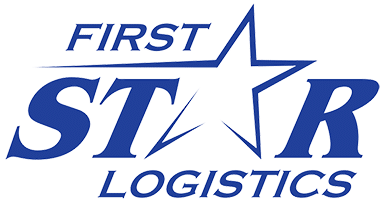Savvy shippers are always looking for ways to manage shipping costs. There are many different strategies to consider, and one of them is freight consolidation. In this guide, we define freight consolidation, explain how it works, detail the benefits, discuss the potential challenges, and explain ways to address each challenge.
What is freight consolidation?
Freight consolidation is a shipping solution particularly useful for shippers looking to move small loads that consist of just a few pallets. In freight consolidation, shipments are combined and separated as needed to transport goods efficiently. For example, suppose a shipper has a lot of goods that need to be picked up or delivered to the same region, instead of shipping each smaller order separately. In that case, the shipper can use freight consolidation to combine the smaller shipments into one more efficient load.
How does freight consolidation work?
Freight consolidation typically works in one of two distinct ways:
- A single load is broken down into smaller parts, and a regional carrier delivers the shipment to many locations.
- Smaller loads are picked up from various locations by a regional carrier and consolidated into one for a single delivery.
Benefits of Freight Consolidation
Freight consolidation offers shippers many benefits, including:
Cost Savings
When a shipper only uses a portion of the trailer but has to pay for the entire space, funds and other resources are wasted. With freight consolidation, shippers can avoid paying a higher rate, make more efficient use of space, and save on shipping costs. Shipping loads together instead of individually gives shippers access to discounted bulk rates. Plus, freight consolidation leads to fewer trucks on the road, less fuel, and less money spent per mile.
Streamlined Visibility and Control
There is a lot to track when many small shipments are traveling individually on the road. With freight consolidation, shippers have only one shipment to keep track of instead of many. This streamlined approach makes oversight simpler, more thorough, and more direct.
Environmentally Friendly
Anytime a shipper moves towards efficiency, it also typically has the added benefit of being environmentally friendly. With freight consolidation, drivers use less fuel and spend less time on the road. Plus, there are fewer trucks on the road. All of these advantages make freight consolidation better for the environment.
Does freight consolidation bring any challenges?
Freight consultation is not a one-size-fits-all solution. Shippers may encounter some common challenges with freight consolidation and potential solutions. We explore both below.
Finding Carriers
Finding carriers willing and able to facilitate freight consolidation can seem complicated. Not all carriers are willing to haul consolidated loads. However, a great freight broker can help with this. Freight brokers have the right connections and know how to coordinate the carriers’ involvement in freight consolidation.
Complicated Logistics
Coordinating everything involved in freight consolidation can seem overwhelming and way too complicated. The complex logistics can leave many shippers wondering, “Is freight consolidation work the hassle?” Once again, there is no hassle with the right brokerage team as your partner. Freight brokers are expert coordinators and problem solvers who can skillfully manage everything involved in freight consolidation.
Surprise Fees
While consolidation saves money in most cases, specific fees are associated with this particular type of job. Freight consolidation typically involves extra stops and tasks not included in direct, full truckload shipments. While the added fees are just a part of the arrangement, knowing what to expect in advance is best. When carriers make multiple stops, they have to charge for each stop. Ensure you communicate thoroughly with the carrier in advance to know the rates and fees for your specific consolidated freight job.
Is freight consolidation right for your business?
If you are trying to decide whether or not freight consolidation is right for your business, consider the following:
The Size of The Loads
If you can fill a truck with one load alone, there is no need even to consider freight consolidation. On the other hand, freight consolidation may be a great option if a load does not fill a truck.
The Location of The Loads
Freight consolidation is typically used for loads that are dispersed throughout a particular region. If the freight pickup or drop-off locations are spread over a large geographic area, freight consolidation may not be the best bet. Also, freight consolidation is irrelevant if there is only a singular pickup and delivery location.
The Timing of The Loads
Timing is everything. Freight consolidation relies upon coordinating pickup and delivery times for multiple loads. Shippers need to coordinate, and the right freight broker can help.
Here at First Star Logistics, we provide our shippers with comprehensive freight transportation solutions to ensure the job is done right at the best possible rates. We are a unique asset-based global logistics provider with over 60 years of experience. Our core business is arranging and securing space for your freight’s transport between states and countries using common carriers such as trucks, railroads, and ocean liners. Our clients benefit from a comprehensive North American network and global reach, along with time and cost-saving technology that delivers results.
To partner with an expert to consolidate your freight, contact us today.



